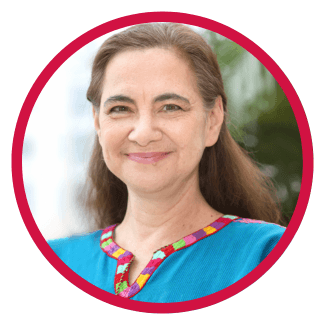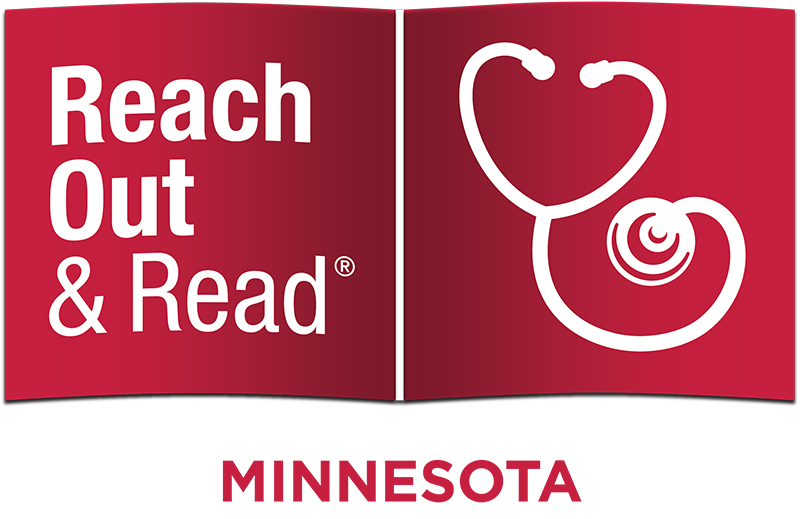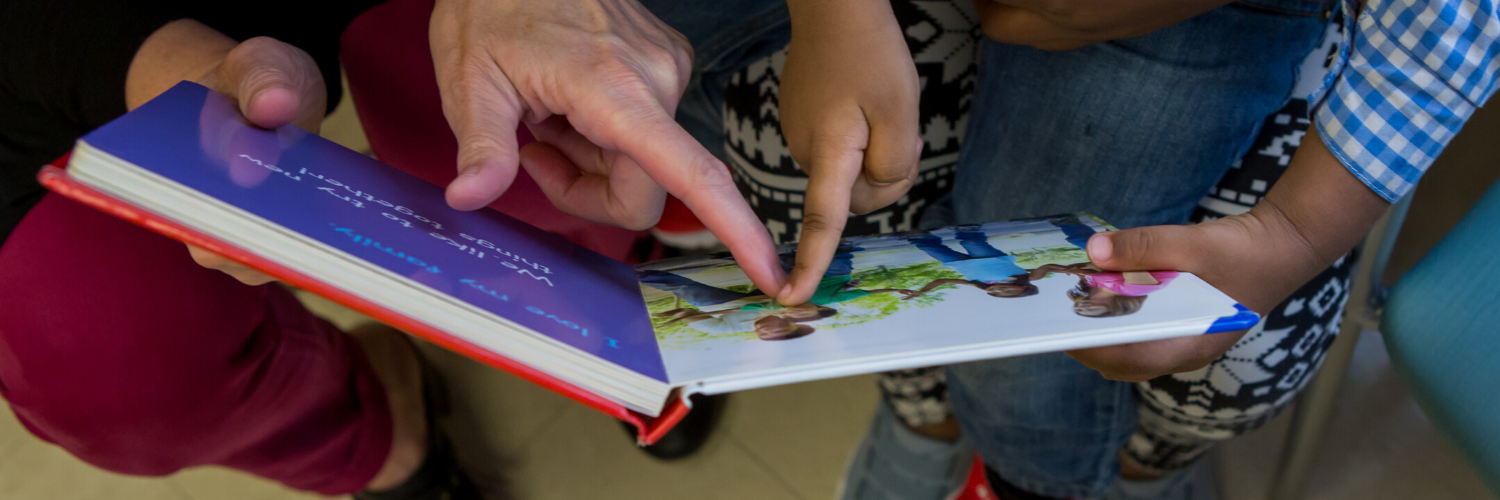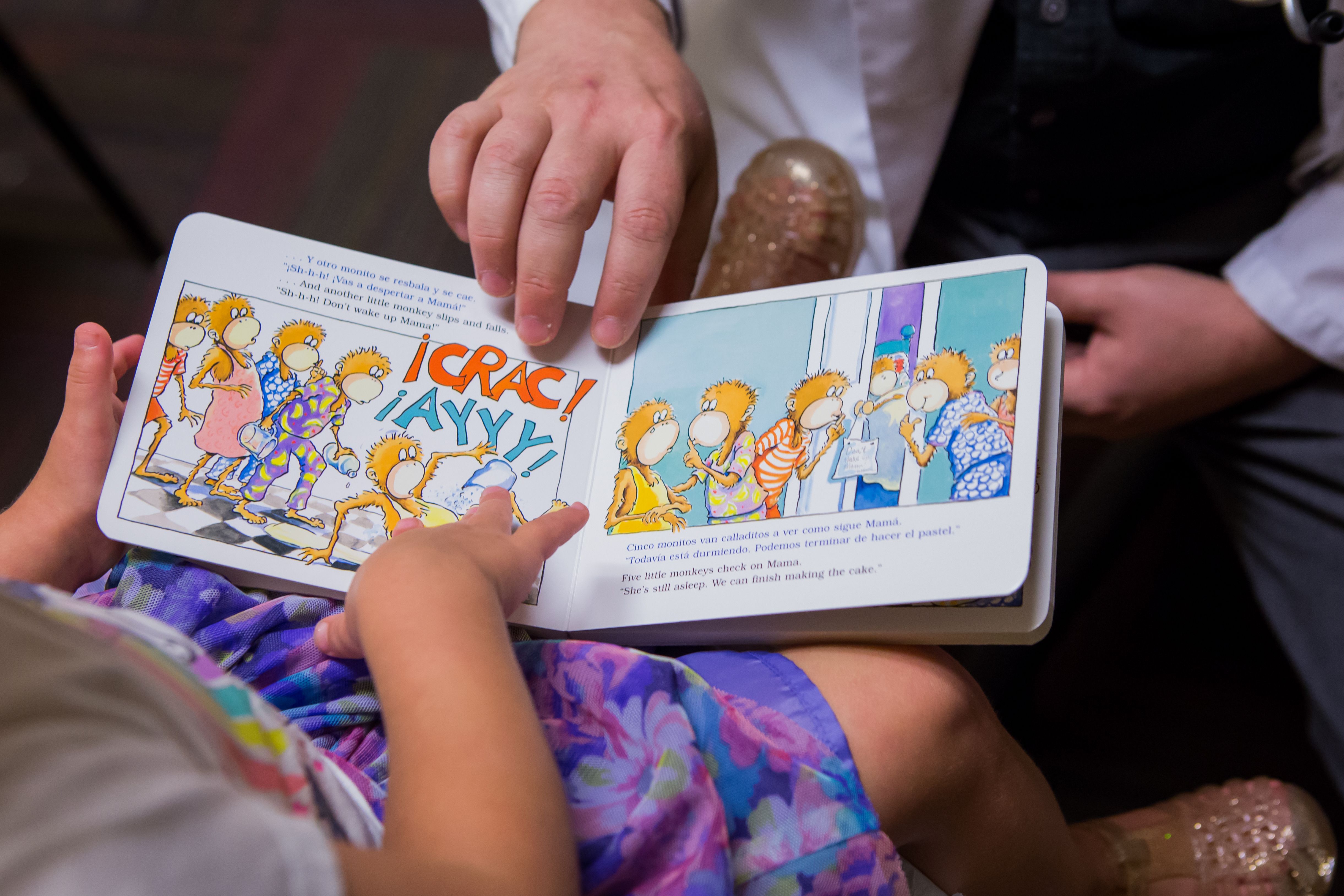Check out the recording of our webinar on bilingualism in early childhood and find more information below!
Do children growing up in multilingual environments experience delays? Or do they have an advantage over their peers? Is it true that young children are "sponges" absorbing all of the languages around them? How can we support children whose primary care takers do not speak English?
If you have ever wondered about any of these questions, we invite you to watch our webinar The Next Page: Bilingualism in Early Childhood, an educational session about how young children learn in bilingual or multilingual environments, and what we can do to make sure they have the support they need to thrive. This webinar is designed for a general audience, including parents and caretakers, those who work with young children professionally, and anyone with an interest in how children learn and use language.
Only a few decades ago it was a commonly held belief that children exposed to multiple languages at a young age could easily get confused and would likely fall behind their monolingual peers. These days however, parents have to compete for limited spots in bilingual childcare centers and pre-k. New research and an increasingly diverse population have contributed to a seismic cultural shift in how bilingualism is viewed. In this rapidly shifting environment, many myths, misconceptions, and conflicting ideas have arisen, and too often parents, childcare workers, and healthcare professionals can have a hard time keeping up. With one in five young children in Minnesota growing up in a home that speaks a language other than English, this topic has never been more relevant!
For this installment of our Next Page webinar series, we invited Dr. Mariana Glusman, a Chicago based pediatrician with decades of experience in bilingual language development. In this session, Dr. Glusman provides a broad overview of multilingual language development, answers common questions that parents, healthcare providers, and early childhood professionals have on this topic, and highlights the importance of sociolinguistic pride for multilingual children growing up in the United States.
Dr. Glusman is joined by a panel of bilingual parents and professionals who will share their perspectives on supporting young children in linguistically diverse homes. The panel will be moderated by Dr. Gigi Chawla, Medical Director for Reach Out and Read Minnesota. Panelists include:
Brenna Batres, MSW, LICSW, was raised monolingual English but is raising her daughter in her second language, Spanish. She is a psychotherapist at Comunidades Latinas Unidas en Servicio (CLUES) and provides bilingual care for her clients.
Remona Htoo is a mother raising a Karen speaking daughter and the author of two bilingual English-Karen children's books. See her website here.
Mercedes Ruiz Estévez, PhD, is a native of the Canary Islands, Spain. She and her husband are raising their two sons in Spanish and English. She works for 3M in Minnesota as a Biomaterial Specialist.
-
 Mariana Glusman, MD
Mariana Glusman, MDDr. Glusman has dedicated her career to decreasing health and educational disparities among minoritized, low income children and their families. Her areas of focus are literacy promotion in pediatrics, advocacy, health equity, bilingual language development, narrative medicine, medical education and provider wellness/joy in practice. Dr. Glusman is an associate professor of pediatrics at Northwestern University’s Feinberg School of Medicine and an attending pediatrician at Ann and Robert H. Lurie Children’s Uptown clinic where, for the past 27 years, she has cared for a diverse, multilingual, medically complex, underserved patient population. She completed her undergraduate studies at Brown University, medical school at the University of Chicago, and her pediatric residency at Children’s Memorial, now Ann and Robert H. Lurie Children’s Hospital of Chicago. She is a past president of the Illinois Chapter of the American Academy of Pediatrics (AAP), and Chair-Elect of the AAP Council on Early Childhood. As part of COEC’s Executive Committee, she Co-Chairs the Policy Subcommittee, and is currently working with a group of national experts to write the intent for a policy statement and clinical report on promoting optimal development and school readiness in young multilingual children. Dr. Glusman is the medical director of ROR Illinois, representing and supporting 130 ROR clinics throughout the state, and training medical providers regionally on literacy promotion in pediatrics. She is also a founding member of Bilingualism Matters Chicago, a consortium of universities with the aims of sharing perspectives on bilingual education and the bilingual experience, and combating myths about bilingual language development.
Dr. Glusman is the author of I Love You Like Sunshine: How Everyday Play and Bedtime Stories Grow Love Connections and Brainpower, a book for newborns and their caregivers, with more than 180,000 copies in distribution in hospitals, clinics, libraries, and community programs nationwide.
Additional questions & comments
With so much engagement from our audience, we weren't able to answer all of the great questions suggested to us doing the Q&A. Our presenter, Dr. Mariana Glusman, graciously agreed to follow-up on a few of the questions we didn't get to during the webinar. See her answers below:
I am a native English speaking grandmother whose 11-month-granddaughter attends a Spanish-only daycare 3 days a week. She is just babbling a lot now and has started to respond to words in both languages. How can we best support her language development in both languages?
The more native speakers in English and Spanish your grandbaby exposed to the better—at the library, at community centers, traveling, books, museums. The key is interaction and fun! Do not allow language to become a barrier between you and your baby!
If the parents are timid about pushing the kid to learn their native language, what are good ways to boost their pride/enthusiasm for speaking it?
This depends on what is available in the community. Some people live in or near communities that speak their language. Are there cultural events they can go to? Ways to expose their child to their cultural roots and enhance cultural pride? Kids like to be like other kids, so if there are places where other children also speak the family's native language that is also a great way to encourage kids to do it too. Emphasizing that cultural pride is can be protective when issues of discrimination arise is another thing to consider.
What do you say to parents who have raised children in a Spanish-speaking household who say that their child does not speak Spanish or rather, the child refuses to answer the parent in Spanish?
Similar to above, exposing children to others their age who also speak the native language is a good way to create positive peer pressure. The other thing to remember is that this is normal and very very common. Don't give up speaking your native language!
Do they have a favorite book or story in your child’s non-English language that you would recommend to others?
There are many beautiful books written in other languages and/or translated from English. They key with translations making sure that they are good! There are regional variations in many languages, and it is wonderful to promote them. But sometimes the translations are bad and distract from the book/story—If you can, check with a native speaker before adding them to your book list!
Tip from the audience:
"I learned from another pediatrician to start my visits with "hello" or an appropriate greeting in the language they use at home as a way to signal my support and help foster connection. I've learned to greet in 6 different languages and counting!" - Nate Chomilo, MD
Reach Out and Read Minnesota recommends these fantastic books written by our webinar panelists:
My Little Legs and I am Here for You by Remona Htoo in bilingual English/Karen
I Love You Like Sunshine/Te Adoro Como a un Sol by Mariana Glusman, MD


